What Is Fieldwork And Why Is It Important?
Written by Kapow Primary
Published on 23rd June 2023
Last Updated: 21st June 2024
Written by Kapow Primary
Published on 23rd June 2023
Last Updated: 21st June 2024
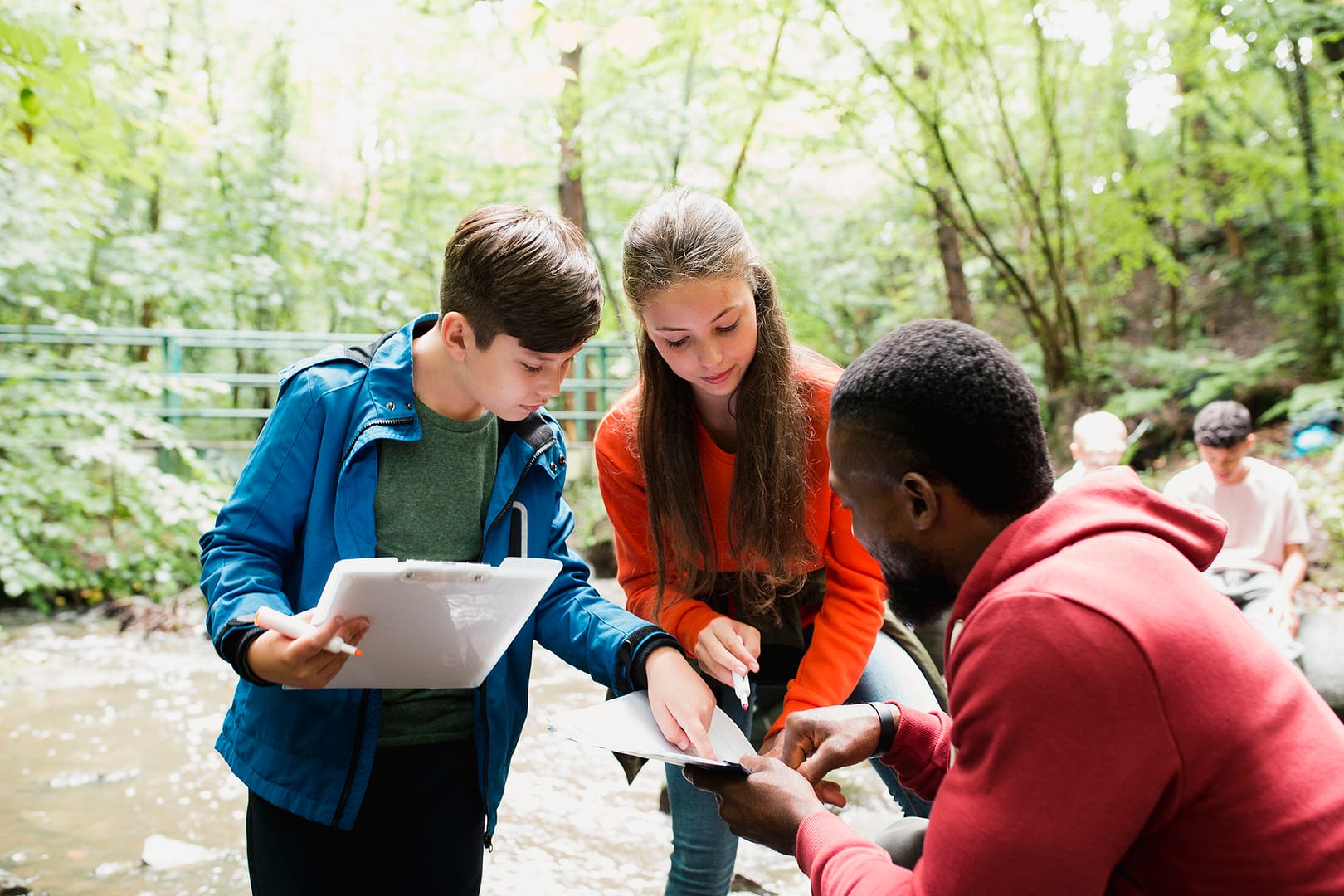
At its heart, fieldwork is designed to ignite a spirit of enquiry and curiosity in children about their environment. Fieldwork in Geography often takes place in local areas, transforming geographical education into a personal and integral part of primary children’s learning journeys.
Fieldwork introduces children to hands-on learning experiences and skills that can’t be replicated within the classroom walls: from deciding where best to place a solar panel on the school’s grounds, to exploring how a community uses their local woodland.
Despite the significance of fieldwork, a decline in use, particularly at key stage 2, has been noted in an Ofsted review conducted in 2021. While early years and key stage 1 have shown more progress, there’s room for improvement to ensure pupils across all levels experience this invaluable aspect of their Geography curriculum.
Kapow Primary’s high-quality Geography curriculum incorporates regular fieldwork into its units, encouraging pupils to engage in data collection, analysis and presentation.
Geography fieldwork effectively interlinks four key areas of learning:
Fieldwork reinforces these aspects of the national curriculum and provides a framework for children’s holistic development. By taking the key geographical concepts and vocabulary and applying them to tangible real-world scenarios, fieldwork aids in solidifying conceptual development.
According to Ofsted’s review, many primary pupils still lack these skills due to a deficiency in meaningful fieldwork. Kapow Primary’s Geography scheme consists of lessons that weave in outdoor research opportunities while grounding the learning in fundamental concepts, skills and principles of geography.
The enquiry process is at the heart of any geographical investigation, and begins with formulating a central question or issue that is engaging and actionable.
Subsequent planning stages map out how to answer this question, including what data to collect, how to collect it and the specific equipment required.
The collection of data, both quantitative and qualitative, is a fundamental part of fieldwork. Various tools can be used to gather and visualise data, including tally charts, bar graphs, Geographical Information Systems (GIS) and sketch maps.
Once data has been observed, measured and recorded, the next steps are to organise and present the data, using tools such as graphs, charts or maps, and to analyse the data, to seek patterns, identify issues and draw conclusions.
Following data analysis, the initial question is revisited to see if the data provides an answer or solution. Pupils present their findings, building their presentation skills and confidence, and propose changes or improvements.
The final stage is evaluation, where children reflect on the entire enquiry process. They evaluate what worked and what didn’t, and then consider how they might approach future geographical questions differently.
A Kapow Primary survey conducted in 2022 indicated that primary school teachers wanted additional support with fieldwork. Therefore, we have ensured that our scheme provides various fieldwork opportunities across all key stages. Our proposed fieldwork planner, found in our long-term plan, offers a structured approach to planning and carrying out fieldwork enquiries.
Our classroom-based lessons prepare children for fieldwork by:
Before embarking on fieldwork, a walk-through of the planned activities and proposed route ensures everyone fully understands the goals of the investigation. This preparation lays a solid foundation for a successful and enriching experience.
As children progress, fieldwork opportunities encourage independence, enabling them to apply their growing geographical knowledge and skills to explore their environment more autonomously. Support for this is provided for teachers to ensure confidence when encouraging pupils to conduct independent research.
Kapow Primary CPD videos support the teaching of the geographical skills that children will need to apply during their fieldwork trips, such as using compass directions, directional vocabulary, grid references and scale bars on maps, and identifying human and physical features.
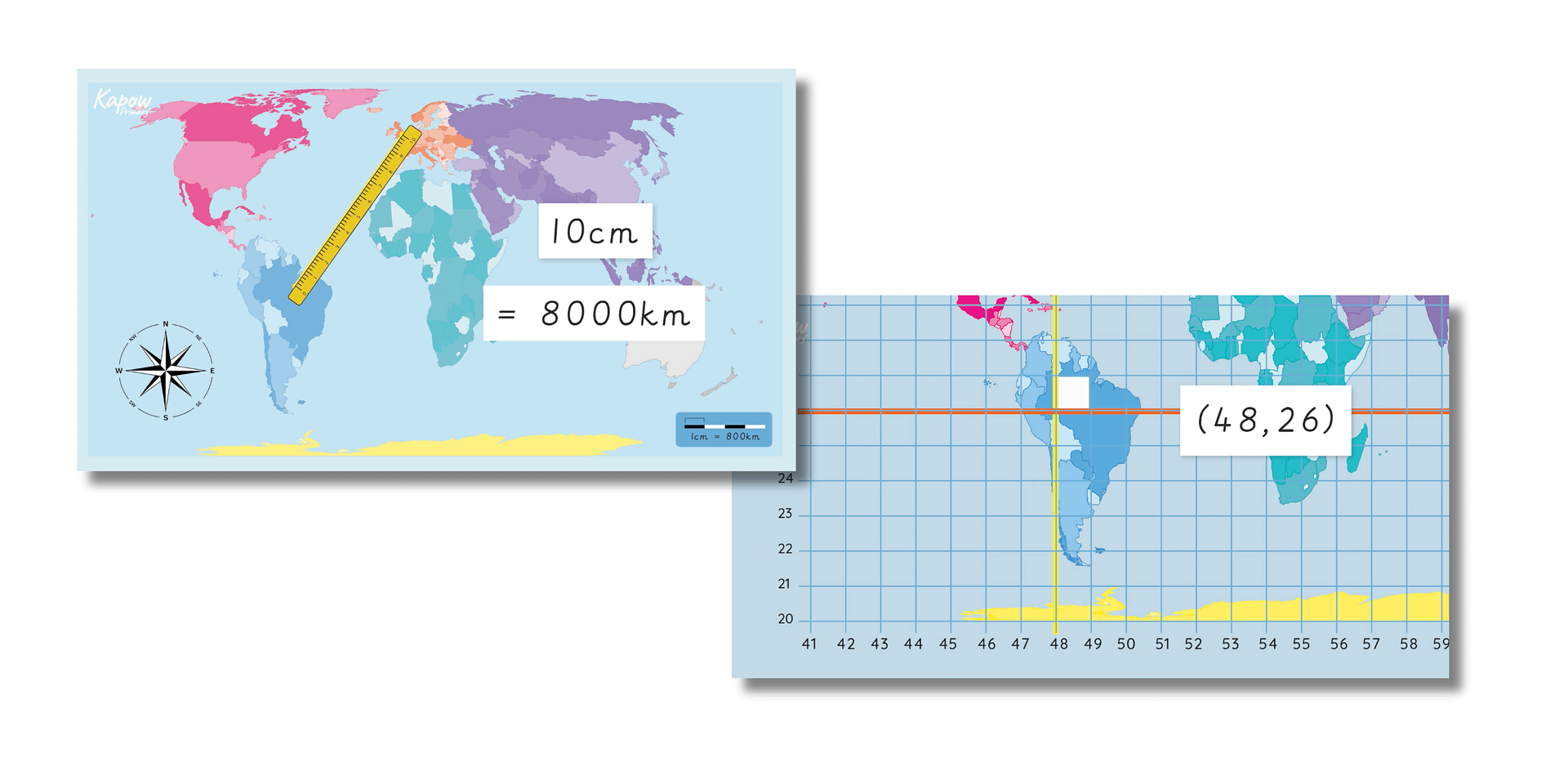
Key stage 1 is the ideal time to introduce children to fieldwork, and it can be done in familiar environments that are easily accessible. Our recommended initial fieldwork enquiry is ‘What can we find in our school grounds?. Children are encouraged to explore and observe the features in the school grounds, add these to a basic map and use directional language to describe their location.
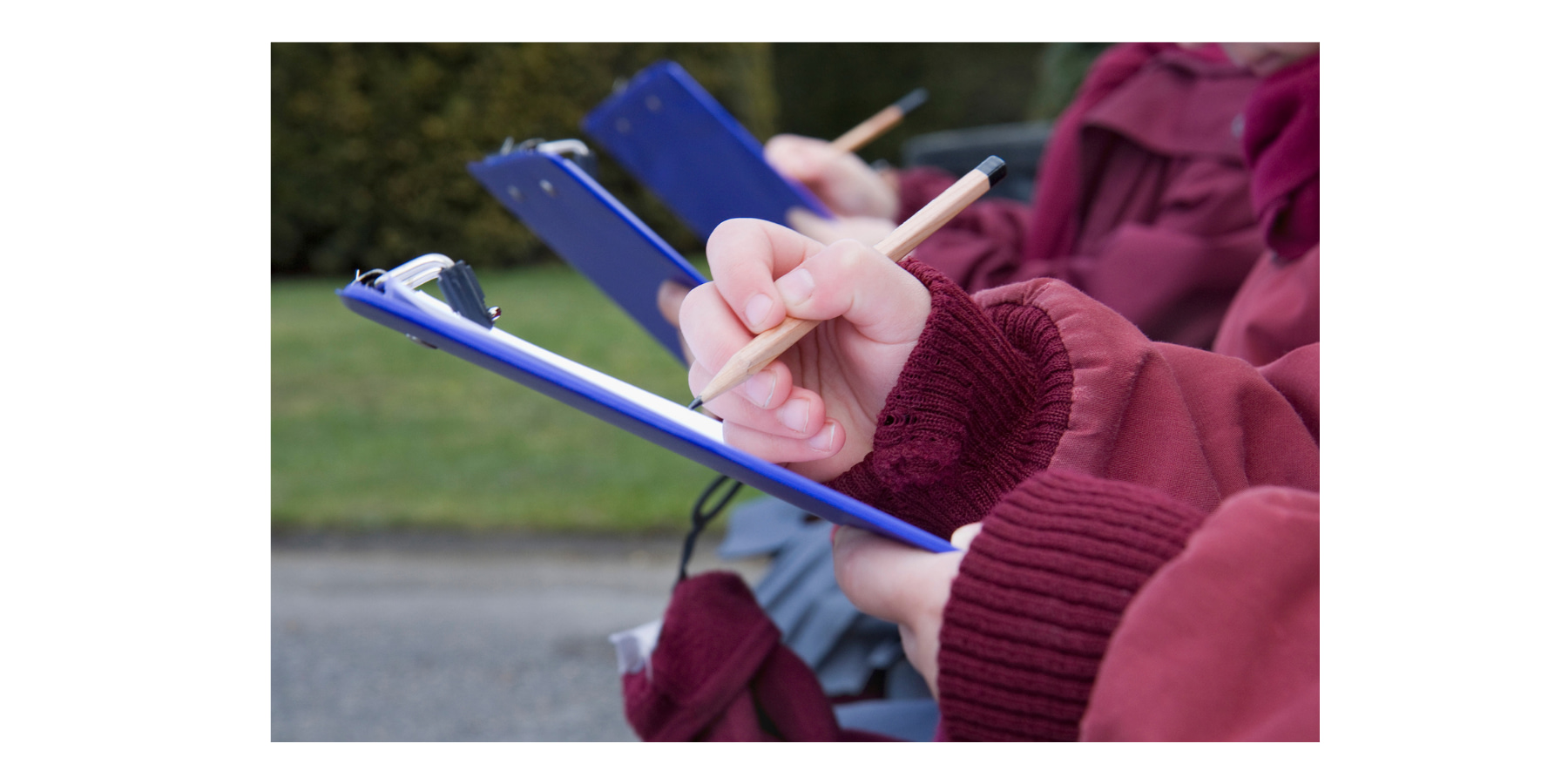
Key stage 1 pupils can develop a solid foundation of geographical skills and knowledge through fieldwork enquiries such as:
As pupils transition into lower key stage 2, fieldwork activities can become more complex and explorative. Begin by asking, ‘Where have the rocks around school come from?’ This question encourages children to investigate the geological origins of their surroundings and sparks an interest in earth science.
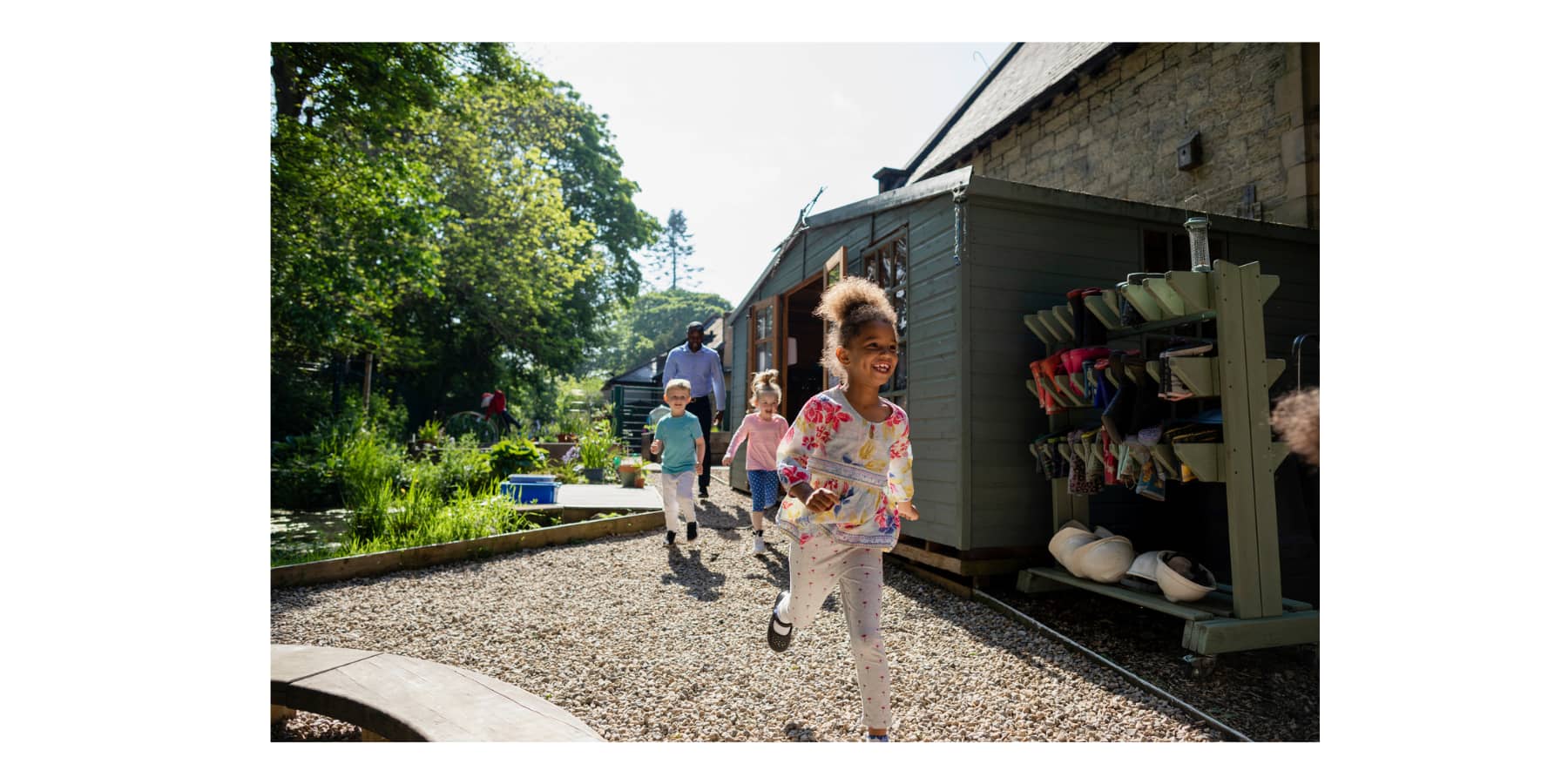
Other key stage 2 fieldwork enquiries include:
Overall, fieldwork enquiries in lower key stage 2 are designed to help pupils broaden their geographical understanding, develop practical skills and foster a deeper connection with their local environment.
As children advance into upper key stage 2, their fieldwork enquiries can further evolve to tackle more intricate issues and independent study.
Start by asking, ‘What is there to do in our local area?’ This enquiry invites pupils to explore local amenities and attractions, assess their accessibility and popularity, and consider the factors influencing these aspects.
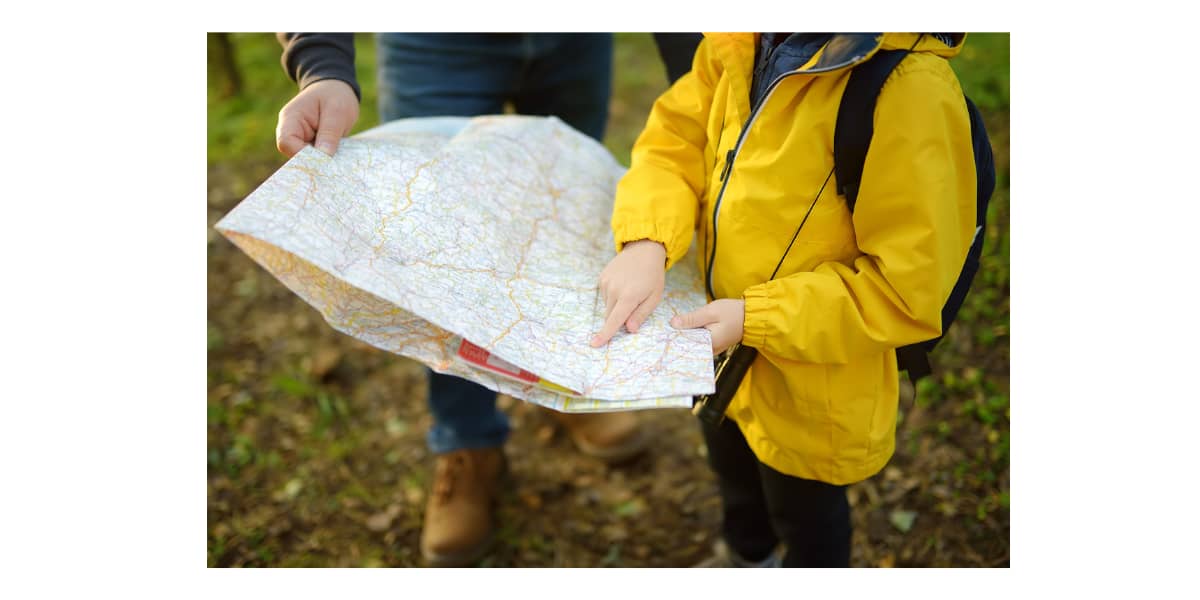
Upper key stage 2 children go on to investigate:
These upper key stage 2 fieldwork enquiries aim to instil a deeper understanding of geographical principles, heighten environmental consciousness, and foster independent research and critical thinking skills.
This blog provides suggestions for fieldwork activities, but all outdoor activities must be undertaken in accordance with your school’s health and safety policies.
Before initiating any field study, complete all necessary risk assessments to identify potential hazards and implement measures to manage them.
We’d love to see any photos you have captured of your fieldwork experiences! Please share your stories on social media by tagging us on Facebook, Instagram or Twitter. We look forward to seeing your fieldwork adventures!